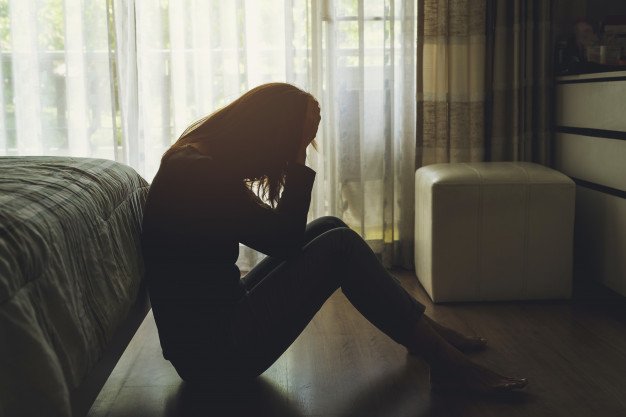When we separate from our partner, we suffer from an anxiety disorder (Cause and characteristic)
When we hear about separation anxiety disorder, we usually think about children. However, separation anxiety disorder can also be experienced by adults.

Separation anxiety occurs when someone fears separation from a person, animal or even object. In any case, the separation anxiety disorder manifests, as we can intuit, after a separation. The symptomatology is diverse: nausea, headache or sore throat.
Separation anxiety often occurs in children, especially the first few years of life. A child does not yet understand that, when a parent leaves, he continues to exist and is aware of him.
However, even though this is understandable for adults who develop this disorder, they are also somehow prisoners of the absence and there is anxiety arising from the uncertainty of when the reunion will occur. An uncertainty that can be especially great in certain situations; For example, imagine the departure of a soldier to a place where the attacks take place.
Symptoms of separation anxiety disorder in adults
The main feature of separation anxiety disorder in adults is the excessive preoccupation with being alone. But, how to know at what moment the concern for loneliness becomes an anxiety disorder?
According to the American Psychiatric Association, separation anxiety occurs when a person has several of the following symptoms:
- Unusual distress for being separated from a person or pet.
- Fear to loneliness.
- Need, very intense or frequent, to know where another person is.
In adults, these symptoms can last 6 months or more. The symptoms can cause significant distress that affects their social, occupational or academic functioning.
Causes of separation anxiety in adults
The anxiety of separation in adults can be derived from the separation with respect to different figures, usually close and dear. On the other hand, this type of anxiety can be related to other types of mental problems, such as delusions (psychotic disorders) or fear of changes (autistic spectrum disorder).
Occasionally, people may categorize an adult with separation anxiety disorder as controlling or overprotective. However, their actions are often an adult way of expressing their fears regarding separation.
As we said before, separation anxiety may have its origin in childhood, specifically how the first attachments are formed. It can also be derived from later experiences in which unexpected and sudden losses have occurred. On the other hand, people who have suffered abuse or neglect also constitute a population at risk.
Risk factor's
Separation anxiety in adults often develops after the loss of a loved one or after a significant event, such as beginning university studies away from home. Divorce can also cause separation anxiety.
In addition, the likelihood of developing separation anxiety disorder in adults is greater if a childhood separation anxiety disorder was diagnosed. Adults who grew up with authoritarian parents may also be at greater risk. On the other hand, people with obsessive-compulsive disorder are more likely to experience separation anxiety as an adult.
Separation anxiety disorder in adults is often diagnosed in people who have also been diagnosed with any of the following conditions:
- Generalized anxiety disorder.
- Post-traumatic stress disorder.
- Panic disorder
- Disorder of social anxiety.
- Personality disorder.
Intervention
The treatment for separation anxiety disorder in adults is similar to the treatments used to treat other anxiety disorders. Possible treatments include:
- Cognitive behavioral therapy.
- Group therapy
- Family therapy.
- Dialectical behavioral therapy.
- Medications, such as antidepressants, anxiolytics or psychotropics.
In any case, both the diagnosis and the treatment have to be determined by a qualified professional. Thus, whenever we have any suspicion, the first step will be to consult.
Reference:
https://www.psychiatry.org/
https://www.medicalnewstoday.com/info/anxiety
http://www.covingtonbh.com/anxiety/signs-symptoms/

Regarding the treatment, especially medications, it would be situational. Some people do experience panic attacks when they were separated for a really long time from their significant others. In that case, they should be prescribed with an antidepressant as the first line of treatment (SSRI).
A lot of people turn to anti-depressant and I recommend it a little because it can be addictive to that type of medication. I prefer that the person go to group therapy or resort to a psychologist.
There is little (if there is) to no clinical evidence that people got hooked up on anti-depressants. This medication causes a lot of side effects and the only thing that concern a clinician regarding whether patients were addicted or not is the benzodiazepine which is usually prescribed with anti-depressants to reduce side effect and maximise desired effects.
Hello. I am an Bot ,I help with pleasure , I'll tell you how to make bitcoin for free on Telegram , everything is real if you want to try coming in here. > http://1b.yt/enSZH , thanks for your time